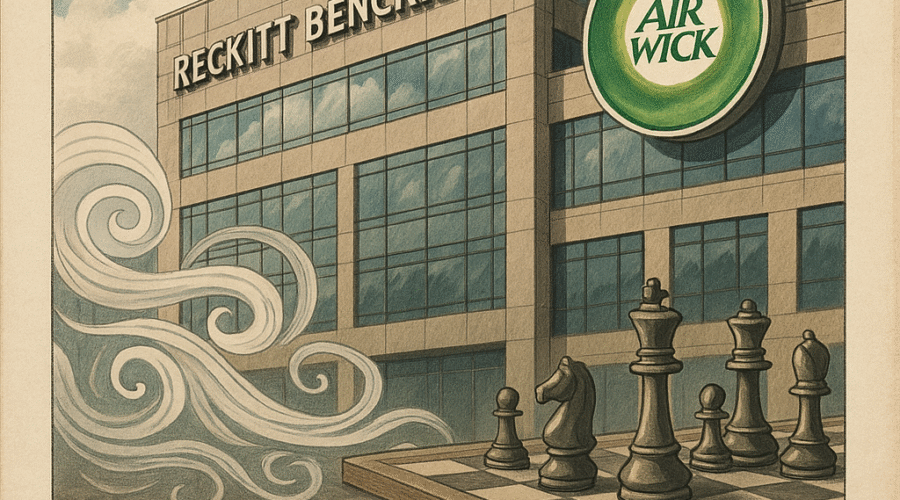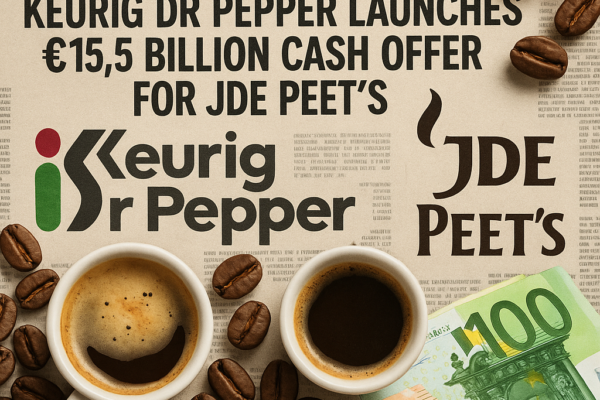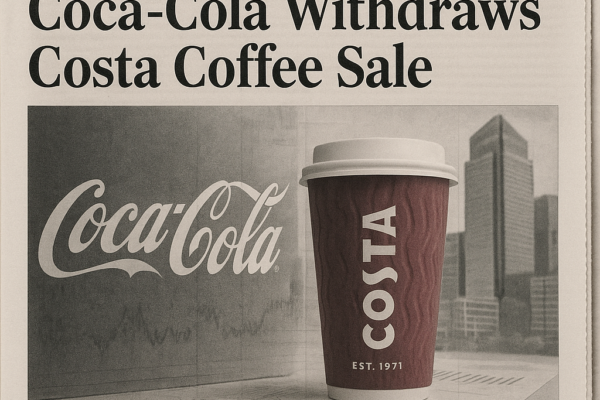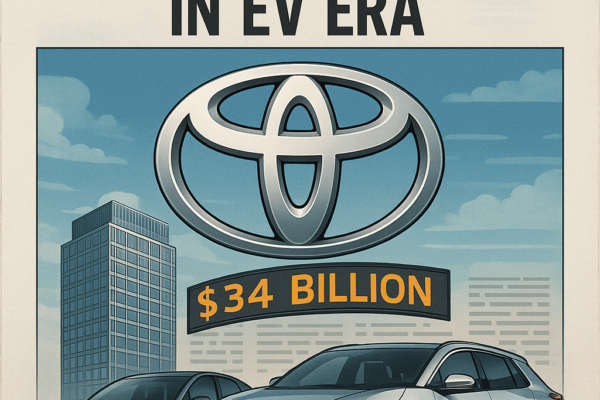Reckitt Benckiser’s (RB) planned sale of its Air Wick-led homecare portfolio, once hailed as a £6 billion strategic masterstroke, now teeters on the brink of collapse amid deteriorating market conditions and buyer skepticism. Despite management’s insistence on closing the deal by December 2025, private equity suitors have slashed valuations by 50% to £3–4 billion[7][9][18], while Apollo Global Management’s abrupt withdrawal from final negotiations signals deepening investor concerns[6][9][18]. This high-stakes divestiture—critical to CEO Kris Licht’s restructuring blueprint—now serves as a litmus test for corporate portfolio optimization in an era of tariff wars, legal liabilities, and consumer spending retrenchment.
Strategic Rationale: From Conglomerate to Focused Powerhouse
Portfolio Simplification Drive
RB’s July 2024 announcement to offload Air Wick, Cillit Bang, Calgon, and Mortein marked a decisive shift toward premium health/hygiene brands like Dettol, Durex, and Nurofen[2][3][4]. The non-core homecare division generated £1.9 billion in 2023 revenue (13% of total) but lagged core segments’ 7% CAGR and 61% gross margins[3][8]. By exiting these “ex-growth” categories, Licht aimed to boost group EBITDA margins from 23.5% to 26%+ by 2026 through operational focus and R&D reallocation[4][8].
Manufacturing Realignment
Concurrent with the sale, RB accelerated production shifts from China to its North Carolina facility to mitigate 25-30% tariff impacts on imported aerosol components[1][7]. This $120 million supply chain overhaul—completed Q1 2025—reduced unit costs by 18% but required temporary price hikes of 6-8% on Air Wick products, dampening Q1 2025 homecare sales by 7% LFL[1][7].
| Period | Valuation Estimate | Key Drivers |
|---|---|---|
| Jul 2024 | £6.0B | Initial analyst projections based on 12x EBITDA multiple |
| Sep 2024 | £5.2B | U.S. tariff announcements on Chinese imports |
| Jan 2025 | £4.1B | Q4 2024 homecare sales miss (-4.3% LFL) |
| Apr 2025 | £3.4B | Apollo/Lone Star revised bids reflecting litigation risks |
| May 2025 | £3.0B | Apollo withdrawal and manufacturing cost overruns |
Triple Threat: Macroeconomic, Legal, and Operational Risks
Tariff-Driven Margin Compression
The Biden administration’s 25% tariffs on Chinese chemical precursors—critical for Air Wick’s aerosol propellants—forced RB to absorb $58 million in additional costs during H1 2025[1][7]. While 70% of production has shifted stateside, residual tariff exposures through 2026 could erase 3-4% of the division’s EBITDA, according to Barclays analysts[8].
Litigation Contagion Fears
Though unrelated to homecare, RB’s $2.1 billion in pending Enfamil infant formula liabilities[8][15] have spooked buyers. Apollo’s deal team specifically cited “balance sheet contagion risk” in withdrawal documents, fearing nutrition settlements could divert capital from homecare reinvestment[6][9].
“You can’t compartmentalize legal risks when the parent company’s credit rating is at stake. Every dollar spent on formula settlements is a dollar not available for brand support.” — Private Equity Executive, Source[9]
Consumer Demand Erosion
Air Wick’s U.S. market share fell 180 bps to 31.2% in Q1 2025 as private-label alternatives capitalized on 12-15% price gaps[1]. With real wages stagnant, 38% of consumers switched to discount air fresheners—a trend J.P. Morgan estimates could depress division revenues by 9% annually through 2027[1][7].
Buyer Dynamics: From Bidding War to Fire Sale
Private Equity Retreat
Initial interest from Apollo, Advent, and Lone Star has cooled amid financing cost spikes. The average leveraged buyout (LBO) debt margin jumped from 450 bps to 625 bps in 2025, pushing target IRRs above 25%—unachievable given Air Wick’s 4% organic growth[6][9][14].
Strategic Buyer Alternatives
RB now courts Henkel and S.C. Johnson, but both prioritize bolt-on acquisitions under £1 billion. Henkel’s CFO recently noted, “We’re not in the market for fixer-uppers requiring heavy restructuring”[7][18].
Pathways Forward: Salvaging Shareholder Value
Spin-Off Contingency Planning
If bids remain below £3 billion, RB may spin off the homecare unit via London listing—a structure that could unlock value through separate currency while insulating the parent from legacy liabilities[8][15]. However, market conditions for IPOs remain treacherous, with 2025 consumer sector listings averaging 17% below target valuations[13].
Operational Turnaround Options
Interim CEO initiatives include:
– 15% workforce reduction in homecare division (1,200 jobs)
– SKU rationalization from 850 to 500 products
– Co-manufacturing partnerships to lower fixed costs by £90 million annually[1][7]
These measures could boost EBITDA margins to 19% by 2026, making the unit more palatable to buyers[7][9].
Investor Implications: Balancing Risk and Opportunity
RB shares (RKT.L) trade at 12.4x forward earnings—a 35% discount to Unilever’s 19.1x multiple[9][18]. While the current 4.7% dividend yield provides downside protection, successful divestiture remains critical to re-rating. A £3 billion sale at 8x EBITDA would reduce net debt/EBITDA from 3.1x to 2.4x, potentially lifting shares 15-20%[7][15]. Conversely, deal failure could trigger credit downgrades and force dividend cuts to preserve liquidity[15][18].
Critical Monitoring Points
1. Q3 2025 Homecare Margins: Improvement beyond 16.5% could revive buyer interest
2. September Fed Meeting: Rate cuts below 4.5% would improve LBO economics
3. Enfamil Litigation: Settlements exceeding $500 million may necessitate asset fire sales[8][15]
Sources
https://www.ainvest.com/news/reckitt-benckiser-air-wick-sale-navigating-uncertainty-volatile-market-2505/, https://worldaerosols.com/news/reckitt-to-sell-air-wick-as-shares-fall/, https://delano.lu/article/reckitt-benckiser-wants-to-she, https://www.independent.co.uk/business/reckitt-benckiser-to-sell-ps1-9bn-portfolio-of-homecare-brands-b2584922.html, https://www.the-independent.com/news/business/reckitt-benckiser-to-sell-ps1-9bn-portfolio-of-homecare-brands-b2584922.html, https://www.marketscreener.com/quote/stock/RECKITT-BENCKISER-GROUP-P-9590106/news/Reckitt-Benckiser-s-Sale-of-Cleaning-Products-Portfolio-at-Risk-of-Failing-Financial-Times-Says-Ci-49896071/, https://www.morningstar.co.uk/uk/news/AN_1744536760935101000/press-reckitt-home-care-price-tag-hit-by-tariff-worry---bloomberg.aspx, https://www.thegrocer.co.uk/analysis-and-features/what-are-the-challenges-for-reckitts-sell-off-strategy/694007.article, https://www.marketscreener.com/quote/stock/RECKITT-BENCKISER-GROUP-P-9590106/news/Reckitt-s-Plan-To-Sell-Air-Wick-Unit-At-Risk-Of-Collapse-FT-49894944/, https://www.streetinsider.com/Mergers+and+Acquisitions/Reckitt%E2%80%99s+plan+to+sell+Air+Wick+unit+at+risk+of+collapse+-+FT/24770433.html, https://www.cpsc.gov/Recalls/2023/Reckitt-Recalls-AirWick-Fresh-Linen-and-Fresh-Water-Aerosol-Air-Fresheners-Due-to-Injury-and-Laceration-Hazards, https://www.streetinsider.com/index.php?classic=1, https://www.pwc.com/gx/en/services/deals/trends/consumer-markets.html, https://corporatefinanceinstitute.com/resources/valuation/private-equity-transaction-timeline/, https://portfolio-strategy.apsec.com/2024/05/10/implications-of-a-possible-spin-off-at-reckitt-benckiser/, https://www.webull.com/news/12785342426227712, https://insidefmcg.com.au/2024/09/18/reckitt-set-to-sell-air-wick-and-other-homecare-business-brands/, https://www.morningstar.com/news/dow-jones/202505096712/reckitt-benckisers-sale-of-cleaning-products-portfolio-at-risk-of-failing-financial-times-says-citing-sources





